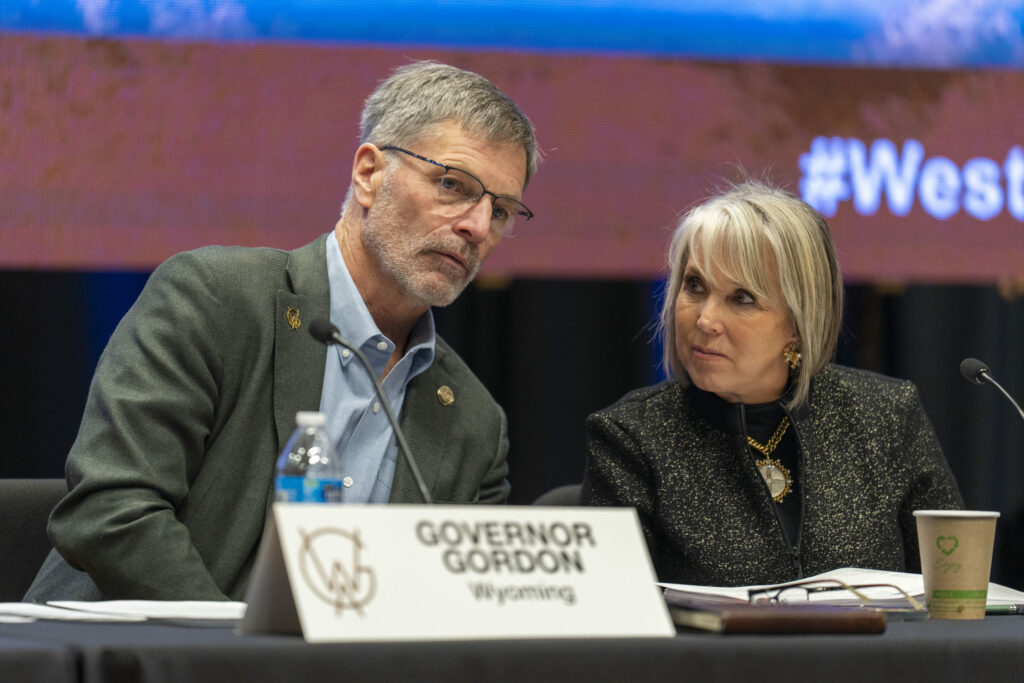To say that American politics have become divisive in the last decade is an understatement.
Republicans and Democrats are more divided along ideological lines than at any point in the last two decades. Back in 2014, the Pew Research Center did a study about the divisiveness in politics and what they found was stunning. And it’s gotten progressively worse in the last 10 years.
Partisan antipathy is deeper, more extensive, and pronounced than ever before. These trends manifest themselves in myriad ways, both in politics and in everyday life. The survey of 10,000 adults nationwide found that divisions were greatest among those who are the most engaged and active in the political process, according to the Pew Research Center.
With the current climate in Congress and legislatures across the country, two governors, with polar opposite views on politics, are looking to change that.
Governor Mark Gordon and New Mexico Governor Michelle Lujan Grisham announced they have come together to participate in the National Governors Association (NGA) Disagree Better Initiative. The two Governors, who have collaborated on policy initiatives as Chairman and Vice Chair of the Western Governors Association, recently sat down to share a message of working together to get the job done.
“Wyoming and New Mexico are both Western states with similar economies, but our politics can be very different,” Governor Gordon says in a media release. “While we may disagree on a number of issues, Governor Lujan Grisham and I have been able to find common ground in places by showing respect for one another when we approach an issue from different perspectives. We have been able to get good work done, and that’s why I look forward to discussing challenging topics with the Governor. We are both willing to listen. We are both willing to kid one another, and I believe these are qualities that have made our nation great.”
In the 2014 study, the Pew Research Center said it found that the overall share of Americans who express consistently conservative or consistently liberal opinions has doubled over the past two decades from 10% to 21%. And ideological thinking is now much more closely aligned with partisanship than in the past. As a result, ideological overlap between the two parties has diminished: 92% of Republicans are to the right of the median Democrat, and 94% of Democrats are to the left of the median Republican. 92% of Republicans are the to the right of the median Democrat, while 94% of Dems are to the left of the median Republican.
New Mexico Governor Grisham addresses this current divide, saying, “At a time of deep partisan division in our nation, Gov. Gordon and I would like to remind our fellow Americans that the best way to resolve our differences and find common ground is by communicating respectfully with one another.”
Even though the governors sit squarely on opposite sides of the political aisle, Gov. Grisham says the do have much in common as western governors they share some similar goals. “If all of us could strive to ‘disagree better’ it would elevate our discourse and make our country stronger,” Gov. Grisham points out.
That’s how the initiative came together. Disagree Better is a year-long NGA initiative to help Americans learn the skills of healthy conflict, according to the joint press release. The effort aims to change the political behavior of both voters and elected officials, showing that the right kind of conflict often leads to better policy, can be more successful politically than negative campaigning, and is the pathway to restoring trust in our political institutions.
Back in 2014, the survey found that partisan animosity increased substantially. In each party, the share with a highly negative view of the opposing party has more than doubled since 1994. Most of these intense partisans believe the opposing party’s policies “are so misguided that they threaten the nation’s well-being.”










